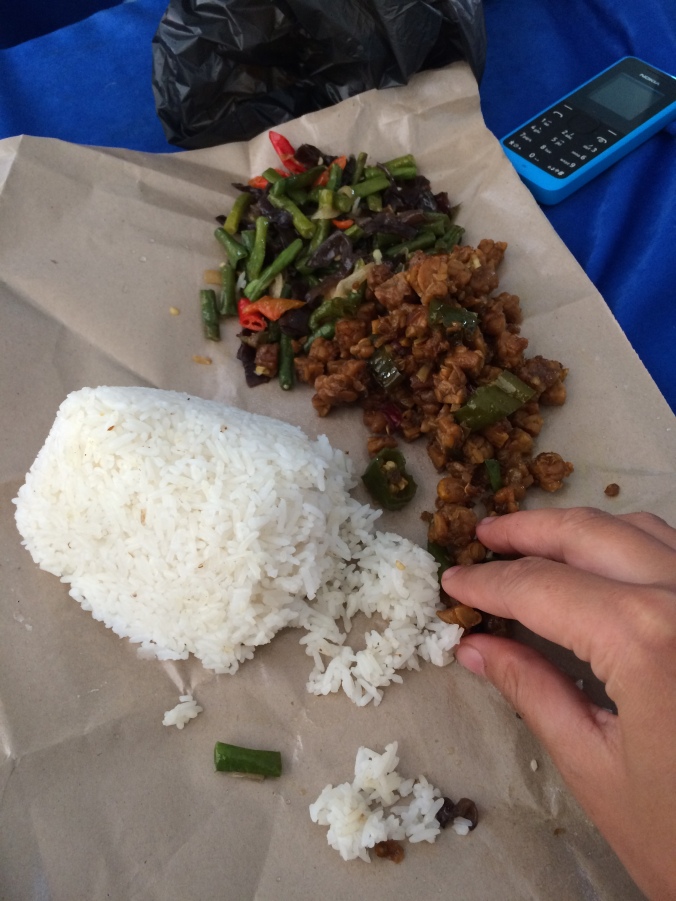I feel like I’m in a constant state of stress in Indonesia. A year in and that stress truly just feels like another aspect of my daily life. Wake up, feel grateful to be alive, eat breakfast, stress out.
I’m stressed for a plethora of different things here.
Going to the store because I know how high the chances are I’ll run into someone I know who will then make fun of me for not wearing make-up or for buying 3 bags of chips.
Eating with coworkers or family wondering who will be the one to make the “fat” comment.
Riding my bike waiting for someone to scream at me, point at me, or stare at me.
Getting on a bus knowing someone is going to try to rip me off.
Buying oleh oleh (souvenirs) for friends and family when I’m on vacation knowing that anything I buy still won’t be good enough, why don’t I just give them my cell phone or my laptop?
Using the bathroom in the middle of the night because Ibu will wake up and come running out to see why I’m going to restroom at midnight, am I sick?
I spent a lot of my first year feeling bad for myself. Pitying myself that things were harder here for me because I was a female or how things were more difficult because I’m an Asian American volunteer or how life here was harder because of my culture and its vast difference from the culture I moved into. How boo-hoo me, people just don’t “get me” here.
But that’s where year 2 perks come in.
You just stop tripping about all of that.
You sort of accept that yes, things will be different, and yes, that sometimes means they will be harder… but that doesn’t mean it’s bad!
Stresses become easier to handle when you know their coming, you almost gain this new super power of just ignoring the bullshit and accepting what you can’t change.
And being challenged and tested in life only makes us more capable humans at the end of the day anyway, right?
I know that some of the things that stress me out in Indonesia will never go away.
I’ll never stop being annoyed by people commenting on my body, no matter which way I try to culturally justify it.
I’ll never get over the fact that I can’t show my knees in a country who’s average temperature is 81 degrees year round.
But you just learn to deal with it. And if that isn’t an important life lesson, I don’t know what is.
I’ve learned to choose my battles, really think about what matters to me and what I feel like I should fight for.
And also acknowledge the times when I’m fighting something that isn’t even really against me in the first place.
Experiencing culture differences doesn’t have to be this battle between me and you, I’m right and you’re wrong. I think, despite “knowing better”, that’s how it often feels though.
But I’m here, and I have no choice but to focus on the reality that most of us just want the same thing for ourselves and for others…to be happy and healthy.
It’s really all good at the end of the day.
It’s unique for me, feeling so uncomfortable all the time. But even in those moments of discomfort beautiful things happen too.
Throwing myself into a situation where I feel all of these things so often make it even easier for me to think about what’s good, recognise the ways in which this country has positively given to my life, and ultimately be grateful for all the emotions of the spectrum I’m experiencing here because they’re all helping me become.
I’m just tryna be somebody.
Sign up for the Peace Corps and you pretty much sign up for a 2 year rollercoaster of emotions.
I’ll either be incredibly grown after this experience or incredibly crazy.



